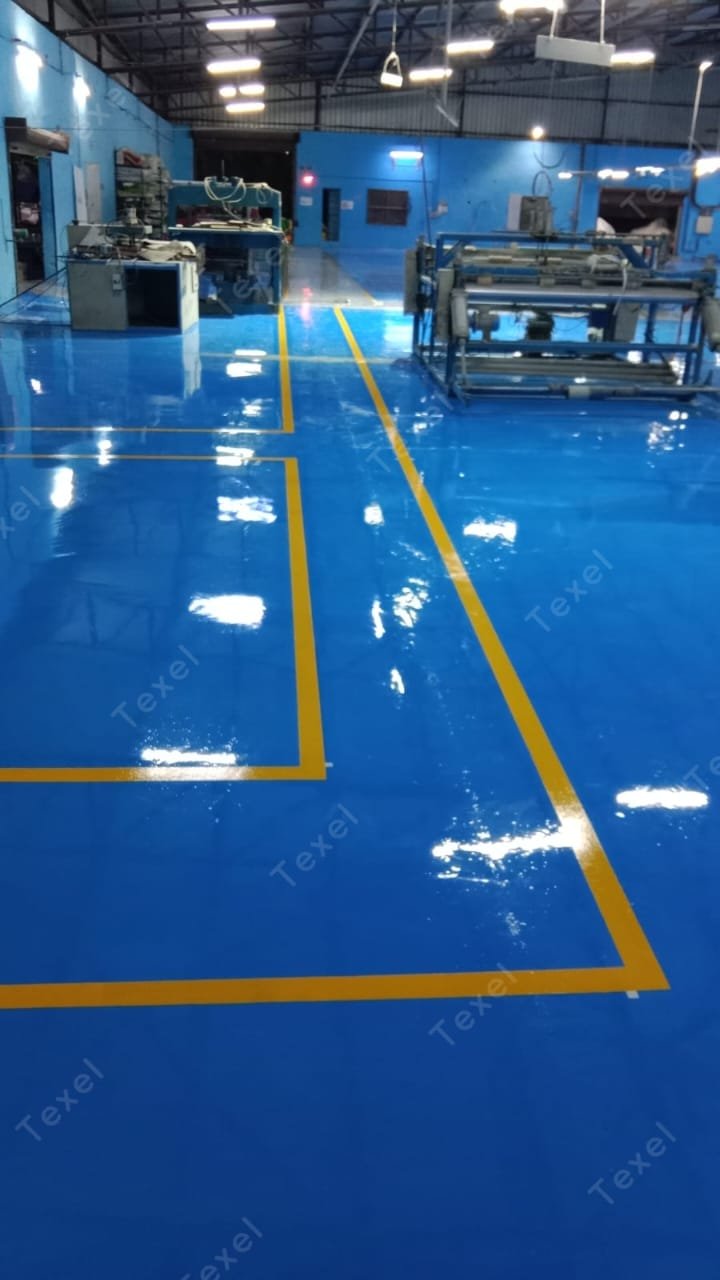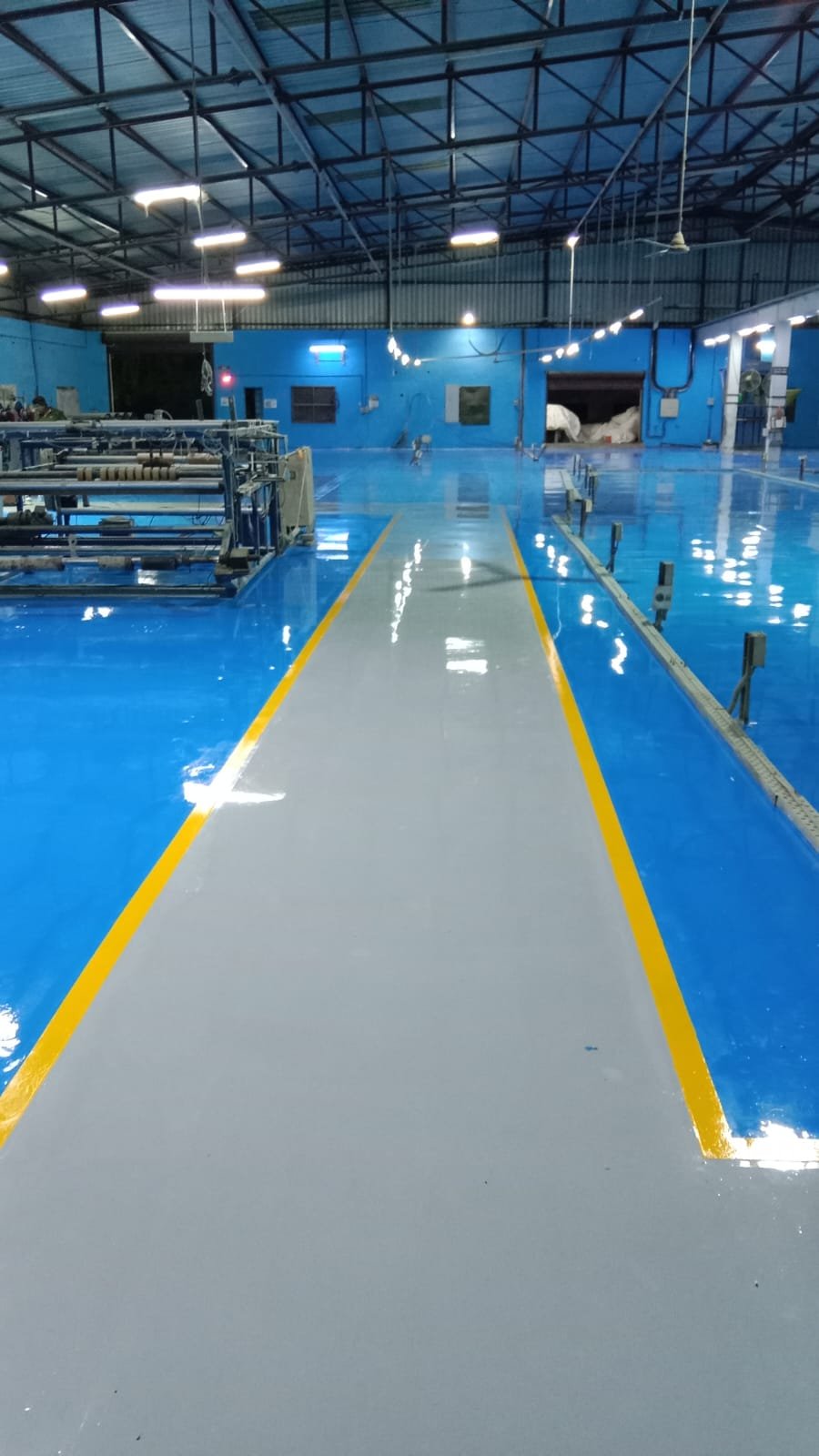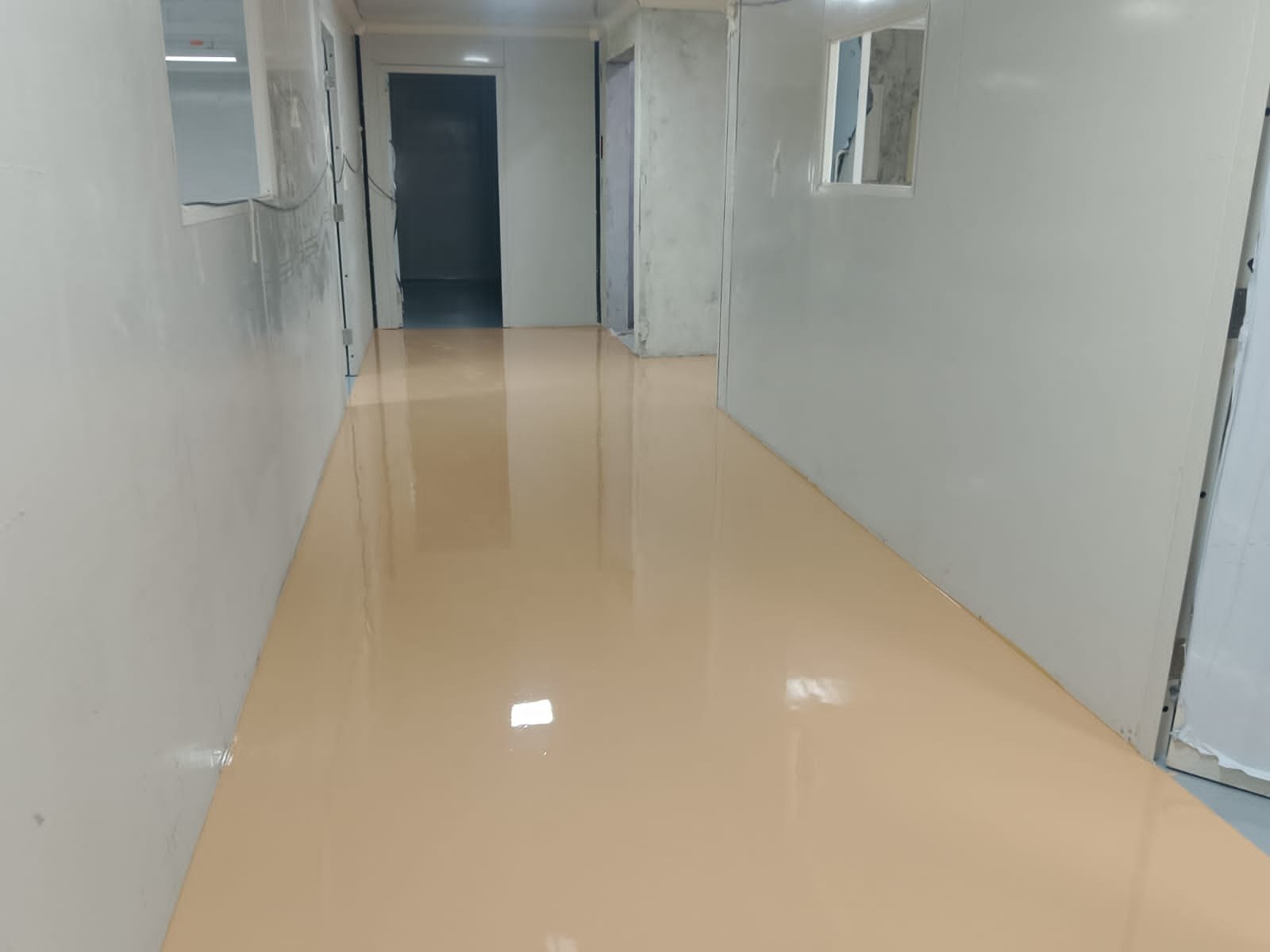IMPORTANCE OF EPOXY FLOORING IN TEXTILE INDUSTRY
IMPORTANCE OF EPOXY FLOORING IN TEXTILE INDUSTRY
INTRODUCTION
Epoxy flooring plays a pivotal role in the textile
industry, offering a robust solution that addresses various critical needs
within manufacturing and processing environments. This specialized flooring
system provides unparalleled benefits that ensure both operational efficiency
and safety standards are met, making it indispensable in textile facilities
worldwide. Beyond functionality, epoxy flooring contributes to a cleaner and
more aesthetically pleasing workspace.
HOW EPOXY FLOORING PLAYS AN IMPORTANT ROLE IN TEXTILE
INDUSTRY ?
Epoxy flooring plays a
crucial and multifaceted role in the textile industry, primarily due to its
ability to meet the demanding requirements of manufacturing and processing
environments. Here are several key ways in which epoxy flooring contributes
significantly:
v Durability
and Longevity:
·
Epoxy flooring is exceptionally durable
and can withstand heavy machinery, constant foot traffic, and the movement of
materials typical in textile manufacturing facilities.
·
Its robust nature ensures longevity,
reducing the frequency of repairs and downtime, thereby enhancing operational
efficiency.
v Chemical
Resistance:
·
Textile manufacturing involves the use of
various chemicals such as dyes, solvents, and cleaning agents.
·
Epoxy flooring is highly resistant to
these chemicals, protecting the underlying concrete substrate from corrosion
and damage.
·
This resistance contributes to a safer and
more hygienic working environment by preventing chemical spills from seeping
into the floor.
v Easy
Maintenance:
·
Epoxy flooring creates a seamless,
non-porous surface that is easy to clean and maintain.
·
Its smooth finish prevents dirt, dust, and
debris from accumulating, simplifying daily cleaning routines.
·
This ease of maintenance not only saves
time and effort but also supports compliance with strict cleanliness standards
required in textile manufacturing.
v Enhanced
Safety:
·
Safety is paramount in textile facilities,
where workers are exposed to potential hazards from machinery and chemical
handling.
·
Epoxy flooring can be customized with
additives to improve slip resistance, reducing the risk of slips and falls.
·
Its seamless and level surface also
minimizes tripping hazards, promoting a safer working environment.
v Aesthetic
Appeal:
·
Epoxy flooring is available in a wide
range of colors, finishes, and textures, allowing textile manufacturers to
choose options that complement their facility’s design aesthetics.
·
Whether opting for a high gloss finish to
enhance light reflectivity or a matte finish for a more subdued look, epoxy
flooring can improve the overall appearance of the workspace.
v Environmental
Benefits:
·
Many epoxy flooring systems are low in VOC
(Volatile Organic Compounds) emissions, contributing to better indoor air
quality and environmental sustainability.
·
Choosing environmentally friendly epoxy
flooring options aligns with corporate sustainability goals and regulatory
requirements.
v Fast
Installation and Cure Times:
·
Epoxy flooring can be installed relatively
quickly compared to other flooring options, minimizing downtime during
installation.
·
Additionally, epoxy coatings typically
have short cure times, allowing operations to resume swiftly after application.
Epoxy flooring is
indispensable in the textile industry because it provides a durable, chemically
resistant, and easy-to-maintain surface that meets the rigorous demands of
textile manufacturing environments.
CONCLUSION
Epoxy flooring stands as a cornerstone in the textile
industry, offering indispensable benefits that elevate operational standards
and ensure a conducive working environment. The importance of epoxy flooring in
the textile industry cannot be overstated. As textile facilities continue to
evolve and demand higher performance from their infrastructure, epoxy flooring
remains an essential investment, supporting the industry’s growth and
sustainability for years to come.
Tags In
Related Posts
Leave a Reply Cancel reply
You must be logged in to post a comment.




